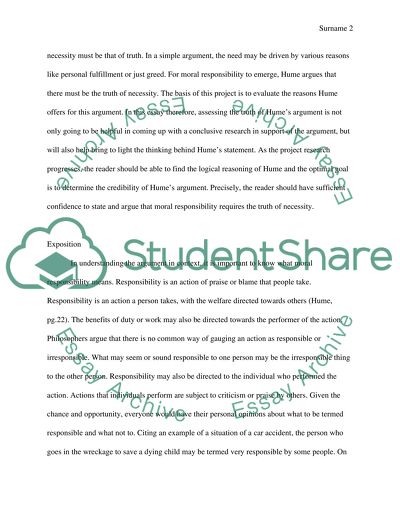Cite this document
(“In Section VIII Part ii of the Enquiry, Hume argues that, contrary to Research Paper”, n.d.)
In Section VIII Part ii of the Enquiry, Hume argues that, contrary to Research Paper. Retrieved from https://studentshare.org/philosophy/1690417-in-section-viii-part-ii-of-the-enquiry-hume-argues-that-contrary-to-the-usual-views-moral-responsibility-requires-the-truth-of-necessity-determinism-what-reasons-does-he-offer-to-support-that-conclusion-evaluate-his-reasoning
In Section VIII Part ii of the Enquiry, Hume argues that, contrary to Research Paper. Retrieved from https://studentshare.org/philosophy/1690417-in-section-viii-part-ii-of-the-enquiry-hume-argues-that-contrary-to-the-usual-views-moral-responsibility-requires-the-truth-of-necessity-determinism-what-reasons-does-he-offer-to-support-that-conclusion-evaluate-his-reasoning
(In Section VIII Part Ii of the Enquiry, Hume Argues That, Contrary to Research Paper)
In Section VIII Part Ii of the Enquiry, Hume Argues That, Contrary to Research Paper. https://studentshare.org/philosophy/1690417-in-section-viii-part-ii-of-the-enquiry-hume-argues-that-contrary-to-the-usual-views-moral-responsibility-requires-the-truth-of-necessity-determinism-what-reasons-does-he-offer-to-support-that-conclusion-evaluate-his-reasoning.
In Section VIII Part Ii of the Enquiry, Hume Argues That, Contrary to Research Paper. https://studentshare.org/philosophy/1690417-in-section-viii-part-ii-of-the-enquiry-hume-argues-that-contrary-to-the-usual-views-moral-responsibility-requires-the-truth-of-necessity-determinism-what-reasons-does-he-offer-to-support-that-conclusion-evaluate-his-reasoning.
“In Section VIII Part Ii of the Enquiry, Hume Argues That, Contrary to Research Paper”, n.d. https://studentshare.org/philosophy/1690417-in-section-viii-part-ii-of-the-enquiry-hume-argues-that-contrary-to-the-usual-views-moral-responsibility-requires-the-truth-of-necessity-determinism-what-reasons-does-he-offer-to-support-that-conclusion-evaluate-his-reasoning.


